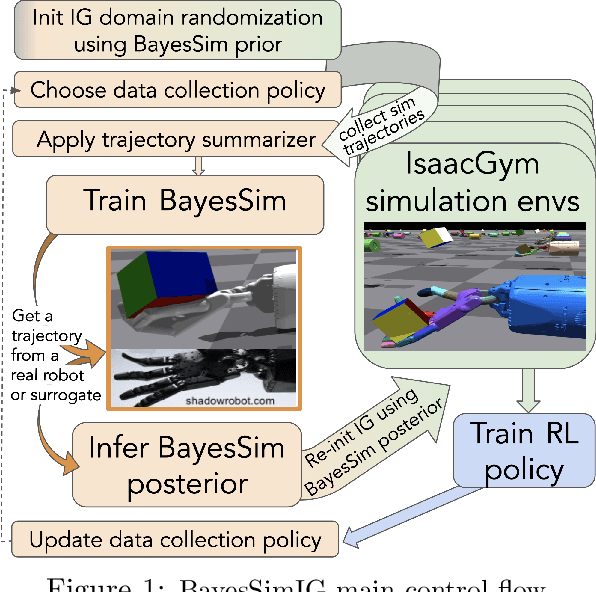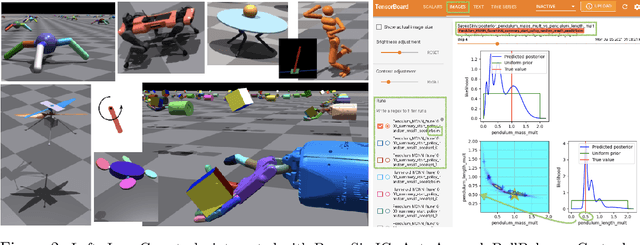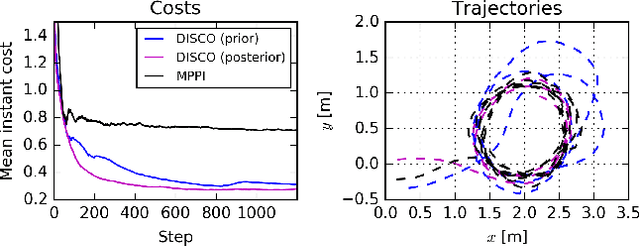Rafael Possas
BayesSimIG: Scalable Parameter Inference for Adaptive Domain Randomization with IsaacGym
Jul 09, 2021


Abstract:BayesSim is a statistical technique for domain randomization in reinforcement learning based on likelihood-free inference of simulation parameters. This paper outlines BayesSimIG: a library that provides an implementation of BayesSim integrated with the recently released NVIDIA IsaacGym. This combination allows large-scale parameter inference with end-to-end GPU acceleration. Both inference and simulation get GPU speedup, with support for running more than 10K parallel simulation environments for complex robotics tasks that can have more than 100 simulation parameters to estimate. BayesSimIG provides an integration with TensorBoard to easily visualize slices of high-dimensional posteriors. The library is built in a modular way to support research experiments with novel ways to collect and process the trajectories from the parallel IsaacGym environments.
DISCO: Double Likelihood-free Inference Stochastic Control
Feb 25, 2020


Abstract:Accurate simulation of complex physical systems enables the development, testing, and certification of control strategies before they are deployed into the real systems. As simulators become more advanced, the analytical tractability of the differential equations and associated numerical solvers incorporated in the simulations diminishes, making them difficult to analyse. A potential solution is the use of probabilistic inference to assess the uncertainty of the simulation parameters given real observations of the system. Unfortunately the likelihood function required for inference is generally expensive to compute or totally intractable. In this paper we propose to leverage the power of modern simulators and recent techniques in Bayesian statistics for likelihood-free inference to design a control framework that is efficient and robust with respect to the uncertainty over simulation parameters. The posterior distribution over simulation parameters is propagated through a potentially non-analytical model of the system with the unscented transform, and a variant of the information theoretical model predictive control. This approach provides a more efficient way to evaluate trajectory roll outs than Monte Carlo sampling, reducing the online computation burden. Experiments show that the controller proposed attained superior performance and robustness on classical control and robotics tasks when compared to models not accounting for the uncertainty over model parameters.
 Add to Chrome
Add to Chrome Add to Firefox
Add to Firefox Add to Edge
Add to Edge